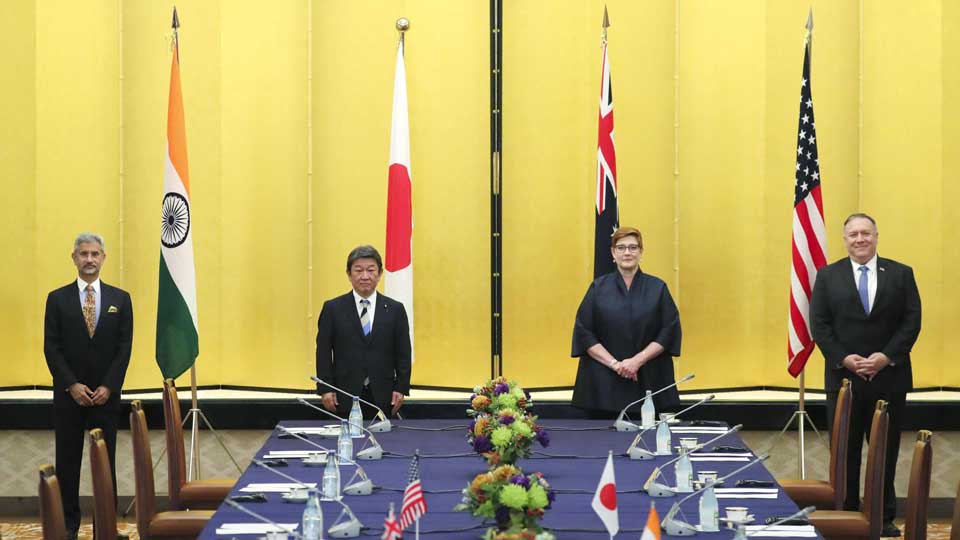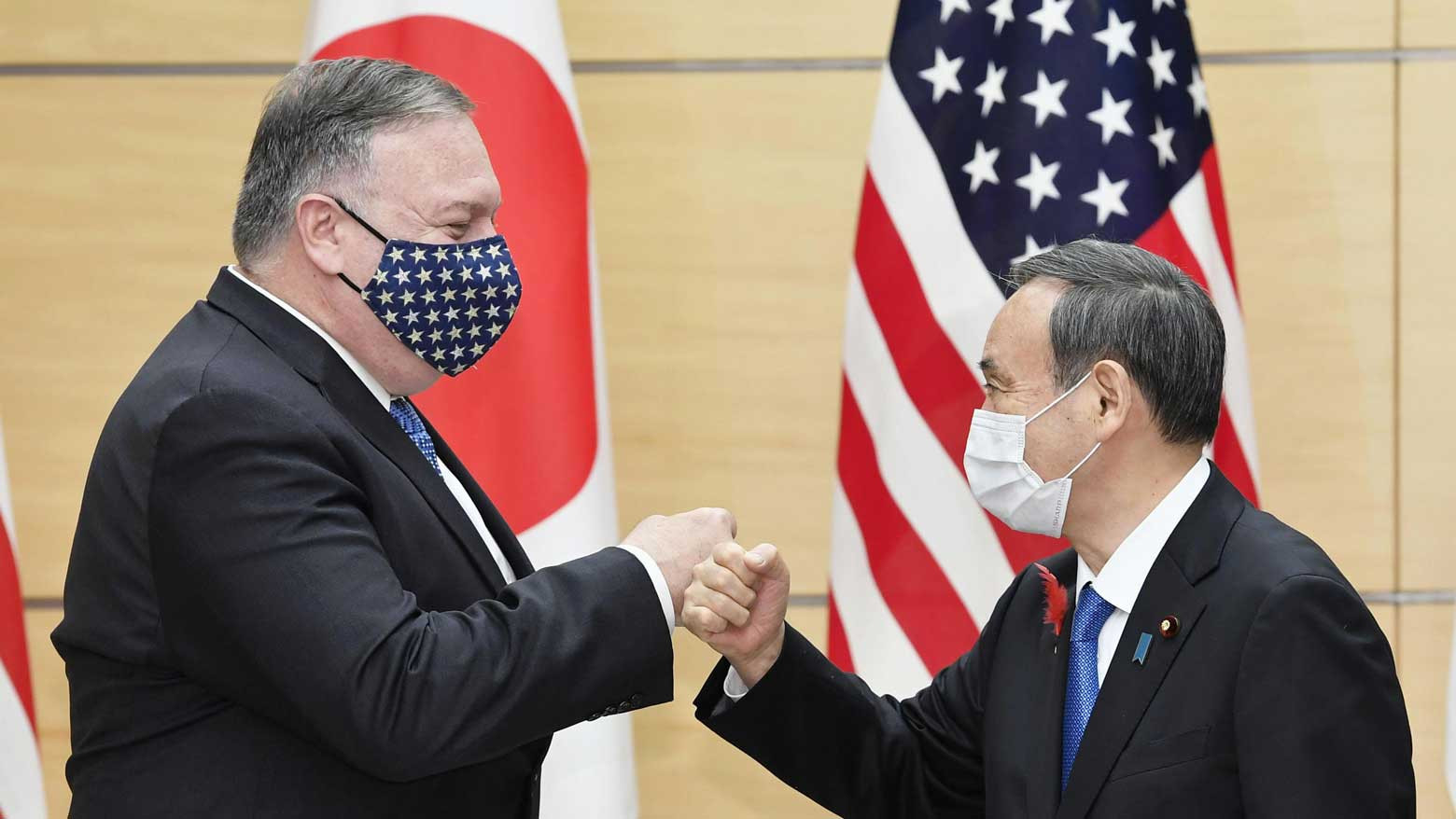Watanabe Tsuneo, senior fellow of the international peace and security department at the Sasakawa Peace Foundation, says he's watching the US presidential election with two key ideas in mind -- "China" and "allied partner for Washington."
"How the next US leader approaches China and induces them to respect existing international rules is a major concern," Watanabe says. "And also how the next president sees Japan and other allies as crucial to international and regional stability is important."
In a policy speech at the Diet on Monday, Japanese Prime Minister Suga Yoshihide said his country would work closely with other nations to achieve "a free and open Indo-Pacific."
The term refers to a foreign policy initiative aimed at achieving freedom of navigation and promoting free trade in a vast area stretching from the Pacific to the Indian Ocean. It was first introduced under Abe Shinzo and reflects a changing geopolitical dynamic in which China is ramping up maritime and economic activity in the South China Sea.
Watanabe says Japan prefers a strong and tough approach to China, so would welcome a Trump win. However, he doesn't expect the US to change its stance, even if Joe Biden takes office.
"This kind of logic is shared with Mr. Biden and his advisers as it was started in the Obama administration," Watanabe says. "Obama made a 'pivot to Asia' a central foreign policy platform."
Watanabe points out that Japan and the other Asian countries that share Washington's security concerns with regard to China are also aligned in terms of economic interests.
"This kind of coordination is very important," he says. "Japan and the US should take leadership on how to maintain peaceful business relations with China while also taking care to prevent China from taking assertive action in the military area."

Japan-US relationship
But there is one issue that Watanabe says could be a potential concern for Japan should Trump win: US military bases in Japan.
"The US will probably demand too much money from Japan to pay as the host of the US military," he says.
Defense Secretary Mark Esper may have tipped Washington's hand on this issue earlier this month when he urged allies to increase defense budgets, saying "there can be no free riders." The US and Japan recently started talks on Tokyo's financial responsibility for hosting US forces in the next fiscal year and beyond. Full-fledged negotiations are expected to take place after the election.
Watanabe says that although Japan is eager to align itself more closely with the US, it will not be easy for the government to drum up public support for increasing the burden on taxpayers, especially given the current economic climate.
Impact on Japanese domestic politics
The current Lower House term ends next October and there is speculation that Suga will dissolve the chamber before then to strengthen his political position.
Watanabe says the outcome of the US election will likely weigh deeply on Suga's decision to call for a snap election.
"Unlike with Abe, there is no guarantee of the chemistry between Suga and Trump," Watanabe says. "So if Suga cannot handle Trump very well, the Japanese constituency will not like Suga's handling of foreign policy. This would not be good for the LDP government."
It is in this way that Watanabe believes Suga's relationship with Trump could dictate the timing of an election. On the other hand, he says Japan expects Biden to be a less erratic and more personable partner than the current president. A Biden presidency would keep the US-Japan relationship stable, and this, in turn, Watanabe says, would give Suga more leeway in terms of the timing of an election.
Watch Video 03:27

